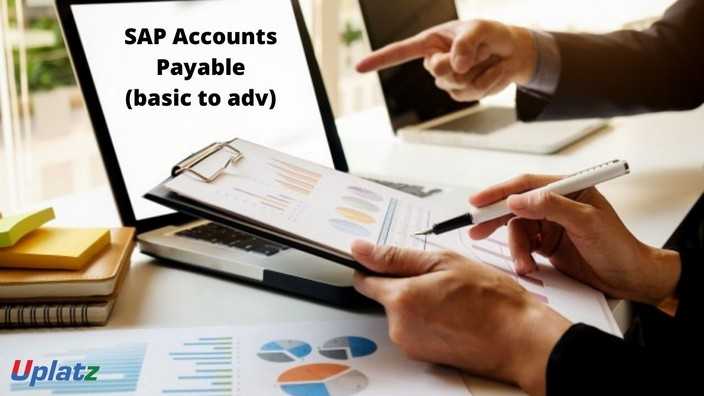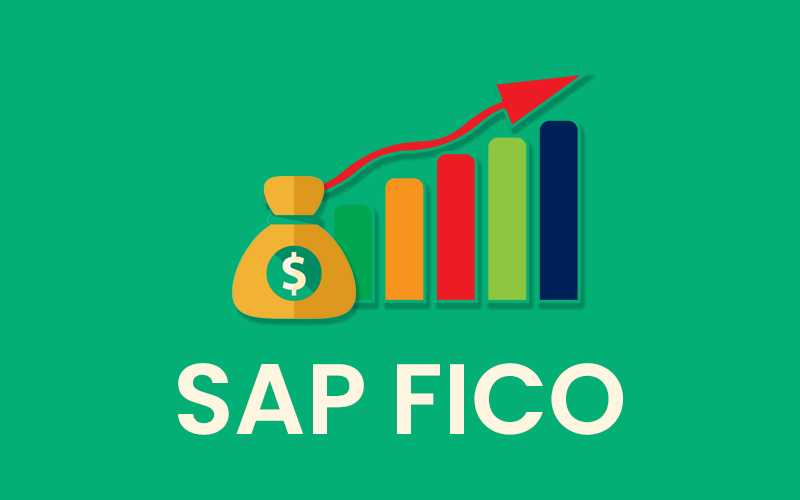SAP Accounts Receivable (basic to advanced)
Learn SAP Accounts Receivable module - Customer Master Data, Invoicing, Payment Processing, Dunning, Credit Management, Multi-Currency, Clearing, more View Course Curriculum
Price Match Guarantee
Full Lifetime Access
Access on any Device
Technical Support
Secure Checkout
Course Completion Certificate
View Course Curriculum
Price Match Guarantee
Full Lifetime Access
Access on any Device
Technical Support
Secure Checkout
Course Completion Certificate
 74% Started a new career
BUY THIS COURSE (
74% Started a new career
BUY THIS COURSE (GBP 12 GBP 29 )-
 75% Got a pay increase and promotion
75% Got a pay increase and promotion
Students also bought -
-

- SAP Accounts Payable (basic to advanced)
- 5 Hours
- GBP 12
- 140 Learners
-

- SAP FICO (Finance and Controlling)
- 30 Hours
- GBP 29
- 5666 Learners
-

- Accounts Receivable in SAP
- 5 Hours
- GBP 12
- 255 Learners

SAP Accounts Receivable is a module within the SAP ERP (Enterprise Resource Planning) system that manages an organization's receivables and financial transactions with its customers. It plays a crucial role in tracking and managing customer invoices, payments, and outstanding balances. Here are some key features and functions typically associated with SAP Accounts Receivable:
1.Customer Master Data: It allows you to maintain comprehensive customer information, including contact details, credit limits, payment terms, and other relevant data.
2.Invoicing: You can create and manage customer invoices, both for goods and services. SAP Accounts Receivable helps automate the invoicing process and ensures accurate billing.
3.Payment Processing: The module handles incoming payments from customers, whether in the form of checks, electronic transfers, or other payment methods. It reconciles payments against outstanding invoices.
4.Dunning: SAP Accounts Receivable includes dunning functionality to automate the process of sending reminders to customers with overdue payments. This helps improve cash flow.
5.Credit Management: It offers tools for managing credit limits, monitoring customer creditworthiness, and making informed decisions about extending credit to customers.
6.Customer Correspondence: You can generate and manage various customer correspondence documents, such as account statements and payment reminders.
7.Reporting and Analytics: The module provides reporting capabilities to track accounts receivable metrics, aging analysis, and other financial performance indicators.
8.Integration: SAP Accounts Receivable seamlessly integrates with other SAP modules, such as General Ledger (FI-GL) and Sales and Distribution (SD), ensuring a cohesive and accurate financial management process.
9.Automatic Clearing: It allows for the automatic clearing of open items, making it easier to reconcile payments and invoices.
10.Multi-Currency Support: SAP Accounts Receivable supports transactions in multiple currencies, which is essential for organizations with international operations.
Efficient management of accounts receivable is vital for maintaining healthy cash flow and overall financial stability. SAP's Accounts Receivable module helps organizations streamline their receivables processes, reduce manual effort, and ensure accuracy in financial transactions.
SAP Accounts Receivable is the balance of money due to a firm for goods or services delivered or used but not yet paid for by customers. Account’s receivables are record on the balance sheet as a current asset. SAP Accounts Receivable (Basic to advanced) is any amount of money owed by customers for purchases made on credit. SAP Accounts Receivable (Basic to advanced) is an asset account on the balance sheet that represents money due to a company in the short-term.
Accounts receivable are created when a company lets a buyer purchase their goods or services on credit. Accounts Receivable is alike to accounts receivable, but instead of money to be received, its money owed. The strength of a company’s Accounts Receivable can be search with the accounts receivable turnover ratio or days sales outstanding. A turnover ratio analysis can be completed to have an expectation of when the AR will actually be received. Accounts Receivable (AR) professionals are responsible for providing financial, administrative and accounting services in order to ensure effective, efficient and accurate financial and administrative operations. Accounts Receivable (AR) professionals perform day to day processing of financial transactions to ensure that company finances are maintained in an effective, up to date and accurate manner, and manage payroll functions.
SAP Accounts Receivable (basic to advanced) is a course by Uplatz that provides a comprehensive overview of the AR function. We will review topics such as credit, billing, cash, collections, and customer service. Become certified in SAP Accounts Receivable (Basic to advanced) with Uplatz online course. You’ll cover the basics including working with spread sheets, account reconciliations and processing invoices. This course by Uplatz will help you improve your career prospects and take on a relevant role in the accounts field.
Course/Topic - SAP Accounts Receivable (basic to adv) - all lectures
-
In this video we have described the SAP Accounts Receivable sub-module in detail. SAP FI Accounts Receivable component records and manages accounting data of all customers. It is also an integral part of sales management. This session will guide you through the basics of AR and AP, what they are, why they’re important, and some things you should keep in mind when recording transactions related to them.
-
This session is all about the AR/accounts receivable which is any money owed by customers to a company. In other words, it’s money that a company has a right to receive because it has provided a product or service. This video also guides you about configuration settings of Accounts Receivable in SAP FICO step by step.
-
In this video the topics provide an introduction to the SAP FICO Accounts Receivable and Accounts Payable application components. Accounts Receivable is a submodule of SAP FI used to manage and record accounting data for all the customers. It handles customer invoices, approvals, payments and other allied activities.
-
This video describes the process of recording accounts receivable and the allowance for doubtful accounts. The Accounts Payable application component records and manages accounting data for all vendors. The Accounts Receivable application component records and administers accounting data of all customers. It is also an internal part of Sales Management.
-
This session explains what is Dunning and how to perform Dunning Run Process along with technical information. You will also understand that if a customer misses the payment for the outstanding invoice by payment due date, then how you can generate a dunning letter using SAP FI and send it to the customer address to remind them of the outstanding payment.
-
In this part we will learn about SAP FI Tax functionality. This is an introductory tutorial about taxes in SAP FI included in our SAP FI course. Learn about the high-level flow of processing of taxes in FI module of SAP ERP. This tutorial also explains how to implement and configure SAP FI (Financial Accounting) and SAP CO (Controlling) module step by step.
-
In this tutorial on SAP International Currencies you will learn why and how foreign currency valuation is carried out in SAP. This video explains how to configure valuation methods and areas, and teaches you how to execute the valuation. Overall you will understand the international currencies within SAP FI Accounts Receivable.
a) Learn to work with customer records, balances and line items
b) Post, search and display customer docs
c) Post customer payments and process dunning runs
d) Run financial reports such as A/R Info systems, Customer balances, Customer lists
e) Understand How Sap Financial Accounting Works.
f) Master The Basics Of Sap Financial Accounting.
g) Learn About Important Financial Accounting Terms.
h) Realize The Importance Of The General Ledger And Learn About It’s Features.
i) Learn About Sub-Ledgers, Accounts Receivable/Payable, Asset Accounting.
j) Overview Of How The Finance Module Integrates With Other Sap Modules.
k) Recognize The Organizational Elements Of R/3 And Describe The Basic Settings.
l) Be Able To Classify And Reconcile R/3 Documents With The Original Documents.
m) Learn About Opening And Closing Posting Periods.
n) Assign Posting Authorizations To Users.
Accounts Receivable in SAP (basic to advanced)
1). Define account groups with screen layout (customers)
2). Create number ranges and assign to accounts groups
3). Define tolerance to customers/vendors
4). Create customer master record
5). Customer document posting
6). Customer incoming payment
7). Maintain terms of payment
8). Define account for cash discount granted
9). Charges of differences
10). Down payment
11). Transfer with clearing
12). Automatic clearing
13). Dunning
14). Item interest calculation
15). Sales tax
16). Define accounts for exchange rate differences
17). Foreign currency posting and valuation
18). Credit memo postings
The SAP Accounts Receivable Certification ensures you know planning, production and measurement techniques needed to stand out from the competition.
Accounts Receivable is a submodule of SAP FI used to manage and record Accounting data for all the customers. It handles customer invoices, approvals, payments and other allied activities. Any postings made in Accounts Receivable are updated in General Ledger G/L as well.
Accounts Payable (AP) is an important application of SAP FICO module that helps to record and manage accounting data of all vendors. In SAP, sundry creditors are called accounts payables and sundry debtors are called accounts receivable.
Advertisements. SAP FI Accounts Payable is used to manage and record accounting data for all the vendors. All invoices and deliveries are managed as per vendor requests. Payables are managed as per the payment program and all the payments can be made using checks, transfer, electronic transfers, etc.
The Statutory Accounting Principles (SAP) are accounting regulations for the preparation of an insurance firm's financial statements. The focus of SAP is to ensure the solvency of insurance firms so that they are able to meet the obligations to their policyholders.
Account Receivable is an account created by a company to record the journal entry of credit sales of goods and services, for which the amount has not yet been received by the company. The journal entry is passed by making a debit entry in Account Receivable and corresponding credit entry in Sales Account.
Uplatz online training guarantees the participants to successfully go through the SAP Accounts Receivable Certification provided by Uplatz. Uplatz provides appropriate teaching and expertise training to equip the participants for implementing the learnt concepts in an organization.
Course Completion Certificate will be awarded by Uplatz upon successful completion of the SAP Accounts Receivable online course.
The SAP Accounts Receivable draws an average salary of $125,000 per year depending on their knowledge and hands-on experience.
Being an accounts receivable specialist is a good career. You earn a living wage and play a vitally important role in a company. The work can lead to different accounting, auditing, or finance manager positions.
Accounts Receivable in SAP FI records and manages accounting data of all customers. It is also an integral part of sales management. All postings in Accounts Receivable are recorded directly in the General Ledger.
When a company owes debts to its suppliers or other parties, these are accounts payable. Accounts payable are the opposite of accounts receivable
Note that salaries are generally higher at large companies rather than small ones. Your salary will also differ based on the market you work in.
a).IT SAP FI Implementor and business analyst.
b).Senior Executive Accounts Receivable.
c).Finance Specialist - Accounts Receivable.
Q1. Explain What Are The Issues Related With Accounts Receivable?
Answer :
As the Accounts Receivable Supervisor, you will:
a) Oversee and resolve all issues related to cash application to ensure accuracy.
b) Reconcile daily cash receipts to payment register.
c) Design and implement new Accounts Receivable processes and procedures.
d) Process short payment and accounts receivable adjustment forms.
e) Develop and maintain reports to assess team productivity.
f) Invoice special customer accounts.
g) Supervise five Accounts Receivable Associates.
h) Other duties as may be assigned.
Q2. Explain What Is Customer Master Record?
Answer :
A Customer Master Record is a permanent record that contains key information about a business partner or a material. This information must be entered into the system before any transactions can take place involving the business partner [customer] or a material.
Entering all the information about a customer or a material into the system b efore making transactions insures that subsequent transactions or inquiries will have consistent data and reports and analyses can be done in an orderly way.
Master Records can be edited or changed when necessary. Changing master records is frequently called "Maintaining" in SAP
Q3. Explain What Is The Difference Between Debenture Holders And Creditors?
Answer :
Debenture holder are those who provides long term loan at specific interest rate in term of cash and creditor provides only short term credit in term of cash for purchasing of goods.
Q4.How To Define Inter Company Transaction In Account Receivable?
Answer :
Intercompany transactions are those transactions that takes place between two or more entities of the same group of company. So the receivable of one entity would the payable of another entity. All intercompany transactions are eliminated befor preparing the final Balance sheet of the group company.
Q5.What Are The Components Or Materials Used By Accounts Receivable Departments?
Answer :
Accounts Receivable department is very important department of the company. The responsbilities of the department is approval of credit limit to the customer study the past history of customer credit sending invoices to the customer updation of the customer credit data factoring contacts with the factoring agents follow up of customers motivating the customers to pay the dues intime and communicating the information to the management.
Credit sales data estimation of credit sales for the future period request for funds to finance department whenever they required follow up of customers receivables management.
Q6. What Is An Accounts Receivables?
Answer :
Ans-Money owed by a business enterprise for merchandise bought on open account. It is also called "A/R" or just "Receivables". Accounts Receivable are the amounts owed to a company by its customers and/or employees.
Q7. Explain How Is A Journal Entry Recorded?
Answer :
Ans-Journal Entries are recorded on a double entry system ie debit and credit concept. In order to record a journal entry the following steps need to be followed.
a) Enter the Journal entry number.
b) Enter the Date of transaction.
c) Enter the Debit item (as per the golden principles of accountancy).
d) Enter the corresponding GL folio number.
e) Enter the Debit amount.
f) Enter the credit item(as per the golden principles of accountancy).
g) Enter the amount in the credit column.
h) Provide a brief description of the transaction.
i) leave a single line before next transaction.
Q8. How We Are Going To Close Ar Periods?where We Are Going To Use Accounting Rules What Are The Setups For That?know We Are Having 100 Transactions In Ar. Know We Want To Close 50 Transactions How?
Answer :
Review balances and reconcile the AR transactions i.e
a) Reconcile receipts.
b) Reconcile journals.
c) Reconcile transactions.
d) Reconcile customer balances.
e) Reconcile transactions and receipts.
f) Reconcile outstanding customer balances i.e.
g) Opening balance + Transactions - Receipts Closing balance.
h) Reconcile transaction and receipt accounting flexfield balances.
i) Transfer to GL.
j) Review transfers results and resolve transfer issues if any.
k) Post the journal in GL.
l) Close the GL period.
Q9. Explain What Is Factoring?
Answer :
Ans-Selling the rights to the amounts owing by debtors to a finance company for an agreed amount (which is less than the figure at which they are recorded in the accounting books because the finance company needs to be paid for providing the service).









